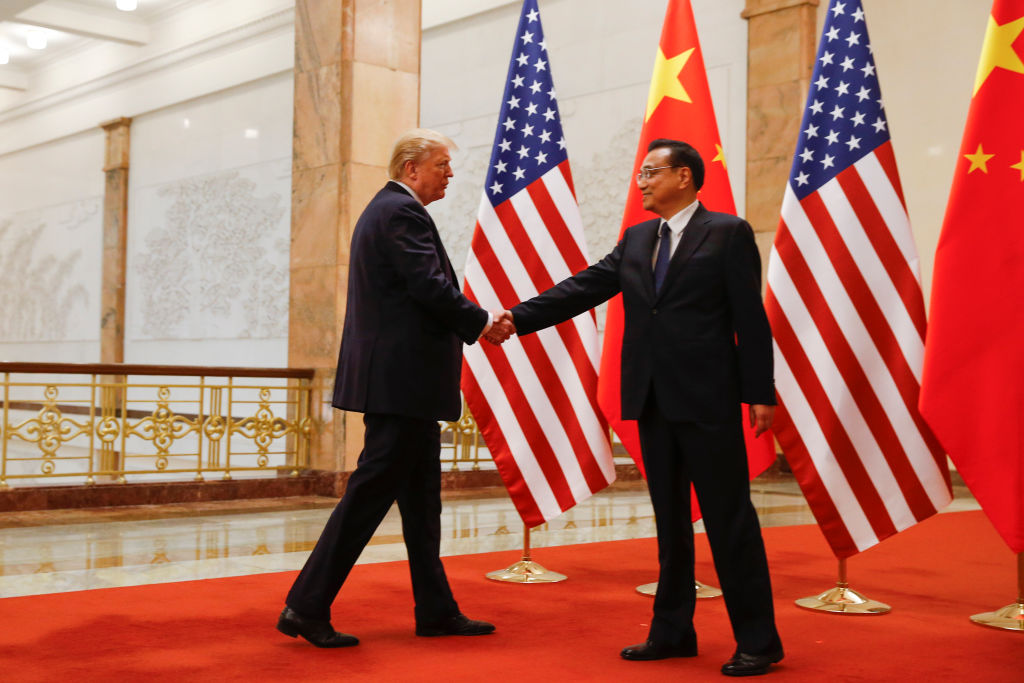America and China are apparently planning for life after Kim Jong Un


A free daily email with the biggest news stories of the day – and the best features from TheWeek.com
You are now subscribed
Your newsletter sign-up was successful
Tensions between the U.S. and North Korea are so high that the U.S. and China recently discussed a matter previously unthinkable: North Korea's collapse. China has propped up the North Korean regime for decades in order to maintain stability on the Korean Peninsula and keep American troops from their border, but recent developments have apparently spurred Beijing to entertain the possibility of dramatic change.
Last week, while speaking to the Atlantic Council, an international affairs think tank, Secretary of State Rex Tillerson told Chinese officials that American troops would enter North Korea should Kim Jong Un's government show signs of deterioration. In particular, the U.S. would be focused on securing the regime's nuclear weapons, Tillerson said, adding the assurance that the U.S. does not desire "regime collapse." Still, should circumstances arise that "unleashed some kind of instability," Tillerson said the U.S. would be ready to act.
China and the U.S. have long avoided discussing life after Kim. Bonnie Glaser, a senior adviser on Asia for the Center for Strategic and International Studies, told AFP that China has long feared that any discussions with American officials regarding Kim's downfall would lead to Beijing's relationship with Pyongyang "becoming hostile."
The Week
Escape your echo chamber. Get the facts behind the news, plus analysis from multiple perspectives.

Sign up for The Week's Free Newsletters
From our morning news briefing to a weekly Good News Newsletter, get the best of The Week delivered directly to your inbox.
From our morning news briefing to a weekly Good News Newsletter, get the best of The Week delivered directly to your inbox.
But China appears now to be preparing for the worst: Last week, The New York Times reported that the Chinese government is building camps near the border with North Korea to prepare for a potential influx of refugees, while The Washington Post reported two weeks ago that a state-run Chinese newspaper recently spent an entire page on instructing how to survive nuclear fallout. China's foreign ministry gave a coy response to reports of Tillerson's remarks: "You may have to ask [Tillerson] himself about his meanings and intentions."
A free daily email with the biggest news stories of the day – and the best features from TheWeek.com
Kelly O'Meara Morales is a staff writer at The Week. He graduated from Sarah Lawrence College and studied Middle Eastern history and nonfiction writing amongst other esoteric subjects. When not compulsively checking Twitter, he writes and records music, subsists on tacos, and watches basketball.
-
 The ‘ravenous’ demand for Cornish minerals
The ‘ravenous’ demand for Cornish mineralsUnder the Radar Growing need for critical minerals to power tech has intensified ‘appetite’ for lithium, which could be a ‘huge boon’ for local economy
-
 Why are election experts taking Trump’s midterm threats seriously?
Why are election experts taking Trump’s midterm threats seriously?IN THE SPOTLIGHT As the president muses about polling place deployments and a centralized electoral system aimed at one-party control, lawmakers are taking this administration at its word
-
 ‘Restaurateurs have become millionaires’
‘Restaurateurs have become millionaires’Instant Opinion Opinion, comment and editorials of the day
-
 NIH director Bhattacharya tapped as acting CDC head
NIH director Bhattacharya tapped as acting CDC headSpeed Read Jay Bhattacharya, a critic of the CDC’s Covid-19 response, will now lead the Centers for Disease Control and Prevention
-
 Witkoff and Kushner tackle Ukraine, Iran in Geneva
Witkoff and Kushner tackle Ukraine, Iran in GenevaSpeed Read Steve Witkoff and Jared Kushner held negotiations aimed at securing a nuclear deal with Iran and an end to Russia’s war in Ukraine
-
 Pentagon spokesperson forced out as DHS’s resigns
Pentagon spokesperson forced out as DHS’s resignsSpeed Read Senior military adviser Col. David Butler was fired by Pete Hegseth and Homeland Security spokesperson Tricia McLaughlin is resigning
-
 Judge orders Washington slavery exhibit restored
Judge orders Washington slavery exhibit restoredSpeed Read The Trump administration took down displays about slavery at the President’s House Site in Philadelphia
-
 Hyatt chair joins growing list of Epstein files losers
Hyatt chair joins growing list of Epstein files losersSpeed Read Thomas Pritzker stepped down as executive chair of the Hyatt Hotels Corporation over his ties with Jeffrey Epstein and Ghislaine Maxwell
-
 Judge blocks Hegseth from punishing Kelly over video
Judge blocks Hegseth from punishing Kelly over videoSpeed Read Defense Secretary Pete Hegseth pushed for the senator to be demoted over a video in which he reminds military officials they should refuse illegal orders
-
 Trump’s EPA kills legal basis for federal climate policy
Trump’s EPA kills legal basis for federal climate policySpeed Read The government’s authority to regulate several planet-warming pollutants has been repealed
-
 House votes to end Trump’s Canada tariffs
House votes to end Trump’s Canada tariffsSpeed Read Six Republicans joined with Democrats to repeal the president’s tariffs
